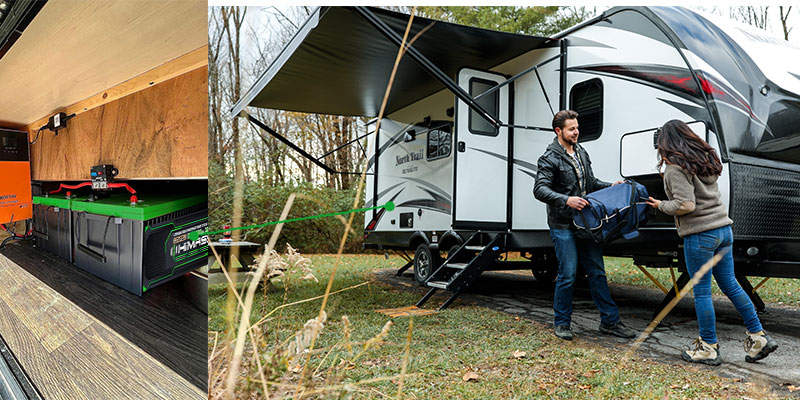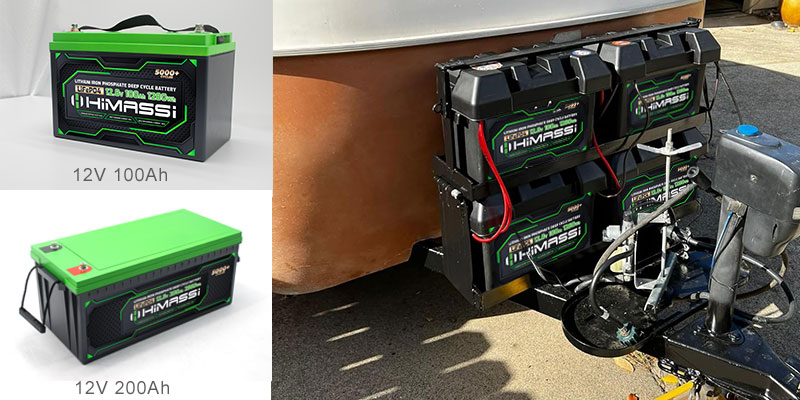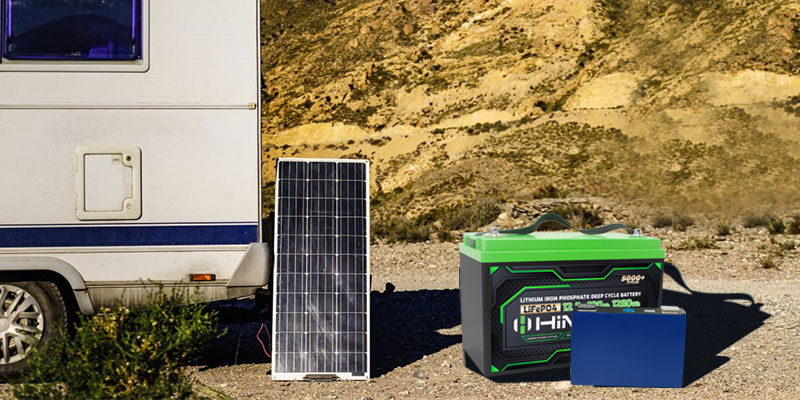Introduction
Recreational vehicles (RVs) are not just transportation modes; they are mobile homes equipped with many amenities that provide comfort and convenience while on the road or camping. The battery system in an RV is foundational, supplying power to everything from lighting to essential household appliances. Understanding how to manage these batteries, especially when connected to an external power source, is vital for any RV owner. This guide will explore the importance of disconnecting your RV battery under certain conditions, why it is necessary, and how it can extend the lifespan of your battery while preventing potential electrical hazards.

The Role of RV Batteries
RV batteries (IFR12V LEAD ACID REPLACEMENT BATTERY 300AH) are critical components that support both the mobility and livability of recreational vehicles. Here’s a deeper look into their roles:
- Types of RV Batteries:
- Deep Cycle Batteries:These are designed to provide a steady amount of power over a prolonged period. They are ideal for powering the living area of the RV, handling cycles of discharging and recharging efficiently.
- Lead-Acid Batteries:The most common and cost-effective option, these batteries are good for starter functions but also can be used for deep cycle needs.
- Lithium Batteries: Although more expensive, they offer a longer lifespan, faster charging, and a deeper discharge capacity, making them increasingly popular in modern RV setups.
- Importance in Travel:
- RV batteries make off-grid travel feasible, allowing travelers to use electrical appliances without a continuous external power source. They are also crucial for emergency situations where external power options are unavailable, ensuring lights, communication devices, and essential electrical systems are operational.
When to Disconnect the RV Battery
Disconnecting the RV battery at the right time is a preventive maintenance step that can save a lot of trouble and expenses in the long run. Here’s when and why it’s crucial:
- While Plugged Into External Power:
- Disconnecting the battery while your RV is connected to an external power source, commonly known as shore power, can prevent overcharging. Overcharging a battery can lead to excessive heat, potential swelling, and irreversible damage, all of which reduce the battery’s lifespan and efficacy.
- Some advanced RV setups include integrated systems that automatically prevent overcharging, but in systems without such features, manual disconnection is a reliable preventive measure.
- During Long-Term Storage:
- When storing your RV for extended periods, disconnecting the battery can prevent the gradual energy drain that occurs even when no active loads are being powered. Natural discharge can lead to a dead battery or one that’s below optimal charge level, which can significantly affect its health and future performance.
- Additionally, disconnecting the battery can also prevent potential damage from electrical faults or shorts in the system during storage, especially in environments prone to fluctuations in temperature and humidity.
How to Safely Disconnect Your RV Battery
Ensuring safety while disconnecting your RV battery is paramount to prevent accidents and damage to the electrical system. Here’s how to do it right:
- Step-by-Step Instructions:
- Identify Your Battery Type: Knowing whether you have a lead-acid, lithium, or another type of battery can dictate the specific precautions you need to take.
- Turn Off All Power Sources: Ensure all appliances are off and disconnect any connections to external power sources.
- Wear Safety Gear: Gloves and protective eyewear can prevent injuries from accidental sparks or exposure to battery acid.
- Disconnect the Negative Terminal First: This reduces the risk of short circuits while disconnecting the positive terminal.
- Inspect and Clean:Check for any corrosion on terminals and clean them with a brush and appropriate cleaning solution.
- Safety Protocols:
- Never Use Metal Tools Directly On the Battery: Use insulated tools to prevent accidental shorts.
- Check for Damages: Look for any signs of damage or wear on the battery and its connections. Damaged batteries should be handled with extra care or replaced if necessary.
- Secure the Battery: Make sure the battery is securely mounted and not liable to move around once disconnected, especially if the RV is being moved or stored.
Common Questions and Expert Tips
Navigating the intricacies of RV battery management can be complex. This section addresses some of the most common concerns and provides expert advice to enhance battery life and performance.
- FAQs:
- How often should I disconnect my RV battery? The frequency depends on usage and storage patterns. If you regularly connect to shore power, disconnect the battery whenever the RV is parked for more than a few days to prevent overcharging.
- What are the signs that my battery needs replacing? Slow cranking, frequent need for recharges, visible corrosion, and swelling are indicators that your battery may be nearing the end of its useful life.
- Can I leave my RV battery connected during short storage periods? For short-term storage (a few weeks to a month), it is generally safe to leave the battery connected, especially if the vehicle is equipped with a good-quality battery maintainer.
- Professional Insights:
- Battery Maintenance: Regularly check the battery’s fluid levels (for lead-acid batteries) and keep terminals clean and tight to ensure optimal performance.
- Smart Charging Practices: Use a smart charger that automatically adjusts the charge rate based on battery condition. This can significantly extend the battery’s lifespan by preventing overcharging and deep discharge cycles.
- Monitor Battery Health:Employ a battery monitoring system to get real-time data on voltage, current, and charge levels. This helps in making informed decisions about charging and potential battery replacement.
Conclusion
Managing your RV’s battery involves more than just knowing when to disconnect it; it requires a holistic approach to usage, maintenance, and understanding the underlying technologies. By implementing the guidelines and tips provided, RV owners can ensure their batteries serve them well throughout their journeys, providing reliability and peace of mind.

About Himax Electronics
As we wrap up this guide, it’s pertinent to highlight how Himax Electronics can aid in achieving the optimal performance of your RV batteries (LiFePO4 battery). Specializing in cutting-edge battery solutions, Himax Electronics offers products designed with longevity and efficiency in mind. Our batteries are built to withstand the rigors of RV life, backed by comprehensive customer support and a commitment to quality that sets us apart in the industry. Explore our range of battery products tailored for RV applications and discover how we can help enhance your traveling experience with reliable, high-performance energy solutions.

